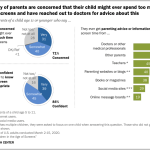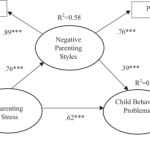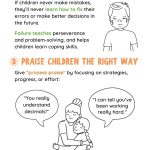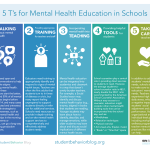Table of contents
Exploring the Link Between Parenting and Child Development
In the world of child development, adults interact with infants and children in a way that supports their growth. The interactions they have are key to providing a conducive environment that can foster the holistic development of a child. Perspectives of professionals in the field of child development have long highlighted how parenting has a direct role in a child’s intellectual, social, and emotional development.
The Power of Parenting
Parents have the power to shape their children’s outlook on life and to help them build a strong sense of self and trust. Research reports have established the link between parenting and child development, especially in the early years of life.
Parents are the primary caregivers of children and it is their responsibility to provide exposure to various experiences that can shape their child’s language and literacy, intellectual capacity, emotional well-being, confidence, and sense of time and space.
Positive Parenting Practices that Fuel Development
When it comes to parenting and its impacts on child development, it is important for parents to focus on positive parenting practices that go beyond the basics of providing food and shelter to their child.
Here are five parenting practices that can help build a positive environment for child development:
- Involvement: Actively show interest in your child’s activities and provide regular encouragement.
- Nurturing Care: Show appreciation and love for your child.
- Structure: Set rules that are reasonable and achievable.
- Teaching: Provide meaningful conversations and tasks that stimulate learning.
- Monitoring: Constantly observe your child’s behaviour patterns and achievements.
Parenting Strategies
One widely used parenting strategy is parenting styles, which looks at the overall pattern of parenting behaviours and approach of a parent or caregiver towards a child. This can assess how a parent tends to respond to various situations.
Research suggests four different parenting styles: authoritative, authoritarian, permissive, and neglectful.
- Authoritative: Emotionally responsive, sets rules, and is consistent and assertive.
- Authoritarian: Demanding and imposes rules, but is not responsive to emotions.
- Permissive: Emotionally responsive, but doesn’t place any rules at all.
- Neglectful: Not responsive to the needs of a child and avoids providing rules and structure.
Successful parenting programmes, such as Triple P and Incredible Years, have been designed to support families and help them better understand how to create a secure and nurturing environment for their children.
Conclusion
Parenting is a complex topic and every family is unique in their approach. However, it is important for parents to understand the profound influence their behaviour and interactions with their child have on their holistic development.
Leading professionals in the field of child development promote the use of positive parenting practices as a means to support appropriate child development. Parents, caregivers, and guardians are increasingly encouraged to look into programmes and strategies that help them create a secure and nurturing environment for their children.







